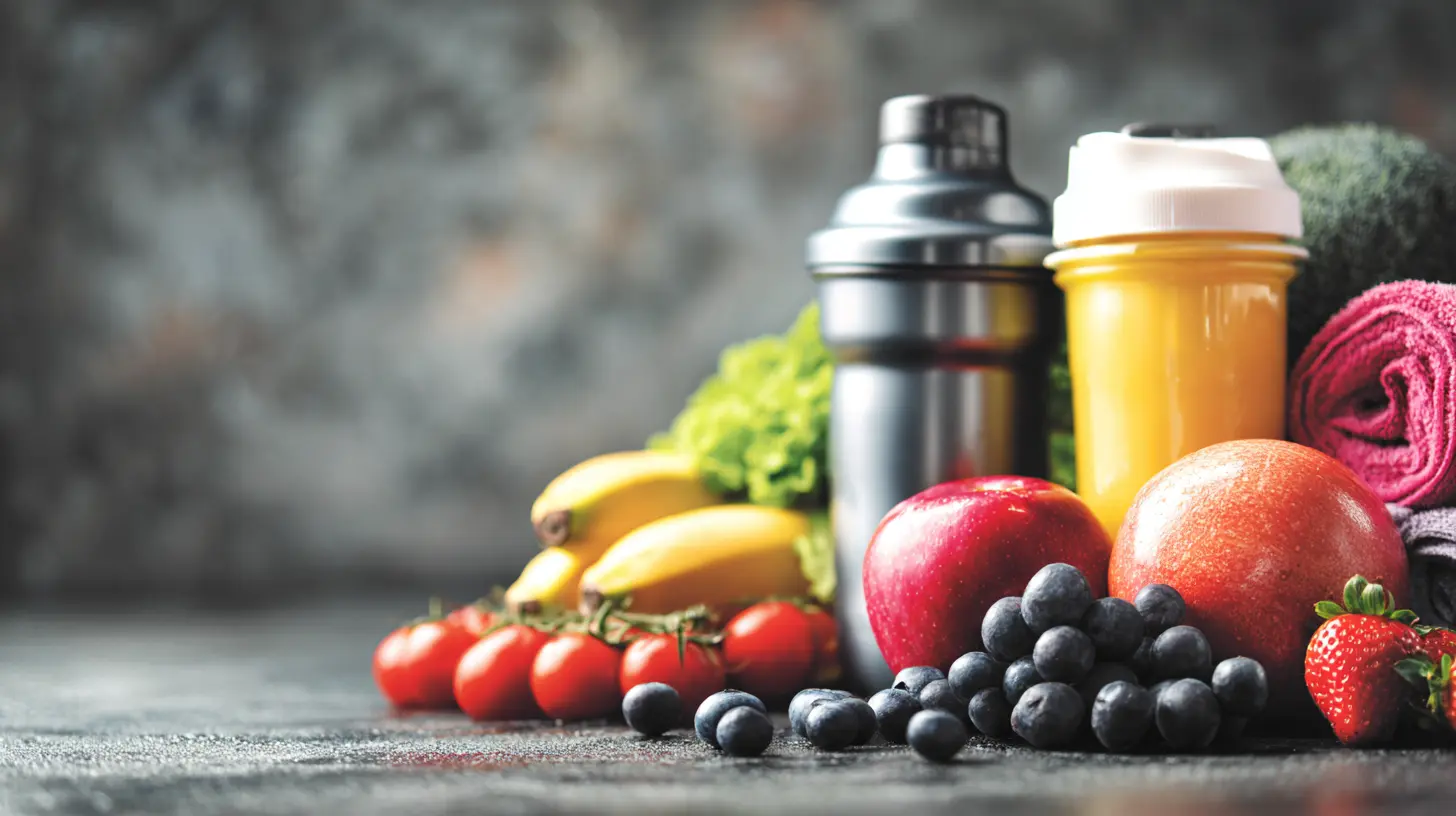
Sports Nutrition for Marathon Training: Science-Based Strategies for Optimal Performance
Discover the scientifically-proven nutritional strategies that fuel marathon success, from daily fueling to race-day nutrition and everything in between.
Sports Nutrition for Marathon Training: Science-Based Strategies for Optimal Performance
Sports nutrition is the strategic application of evidence-based dietary principles to optimize athletic performance, enhance recovery, and support the physiological demands of training. For marathon runners, proper nutrition isn't just about fueling individual runs—it's about systematically supporting the cumulative metabolic stress of weeks and months of training while preparing the body to perform optimally over 26.2 miles. Contemporary exercise science reveals that nutrition is as critical to marathon success as the training itself.
What Is Sports Nutrition?
Sports nutrition is the specialized field that examines how food and fluid intake affects athletic performance, recovery, body composition, and health. It encompasses macronutrient balance (carbohydrates, proteins, fats), micronutrient adequacy (vitamins and minerals), hydration strategies, nutrient timing, and ergogenic aids (performance-enhancing supplements).
For endurance athletes, sports nutrition focuses on maximizing aerobic capacity, preserving lean muscle mass, optimizing substrate utilization (the body's ability to efficiently burn carbohydrates and fats), minimizing gastrointestinal distress, and accelerating recovery between training sessions.
Core Components of Marathon Sports Nutrition:
- Energy availability: Consuming adequate calories to support training demands and recovery
- Macronutrient periodization: Adjusting carbohydrate, protein, and fat intake based on training phase and session type
- Hydration and electrolyte balance: Maintaining fluid homeostasis before, during, and after training
- Nutrient timing: Strategically consuming nutrients around workouts to maximize adaptation and recovery
- Race-day fueling: Optimizing carbohydrate availability and preventing gastrointestinal issues during the marathon
Why Sports Nutrition Is Critical for Marathon Training
Glycogen Stores and Endurance Performance
Marathon running relies predominantly on carbohydrate oxidation, particularly muscle glycogen. Research published in the Journal of Applied Physiology demonstrates that muscle glycogen depletion is the primary factor limiting marathon performance. Runners typically store 400-500g of glycogen in muscles and liver—enough for approximately 90-120 minutes of moderate-to-high intensity running. Beyond this point, runners experience precipitous pace decline commonly known as "hitting the wall."
Optimal carbohydrate nutrition enables maximum glycogen storage before the race (glycogen supercompensation), maintains blood glucose during training and racing, and accelerates glycogen resynthesis post-exercise. Studies show that runners consuming adequate carbohydrates (5-7g per kilogram body weight daily during moderate training) maintain 40-50% higher muscle glycogen levels compared to those on low-carbohydrate diets.
Immune Function and Training Consistency
Marathon training suppresses immune function through multiple mechanisms: elevated cortisol, reduced glutamine availability, oxidative stress, and transient inflammation. A 2018 study in Nutrients found that endurance athletes consuming inadequate energy (relative energy deficiency) experienced 2-3 times higher rates of upper respiratory tract infections compared to adequately fueled athletes.
Proper nutrition—especially adequate total energy, carbohydrates around training sessions, protein intake, and micronutrients like vitamin D, vitamin C, zinc, and iron—supports immune resilience. This translates directly to training consistency, the single strongest predictor of marathon performance.
Recovery and Adaptation
Training triggers the stimulus for adaptation, but recovery and nutrition determine whether those adaptations occur. Post-exercise nutrition serves multiple critical functions:
-
Muscle Glycogen Resynthesis: Consuming 1.0-1.2g carbohydrate per kilogram body weight within 30-60 minutes post-training maximizes glycogen restoration rates, reaching 5-6% per hour with optimal nutrition versus 1-2% per hour without carbohydrate intake.
-
Muscle Protein Synthesis: Resistance to endurance training-induced muscle damage requires adequate protein. Research in Medicine & Science in Sports & Exercise demonstrates that 20-40g high-quality protein consumed within 2 hours post-training maximizes muscle protein synthesis and reduces muscle soreness.
-
Inflammation and Oxidative Stress Management: Antioxidant-rich foods (particularly polyphenols from berries, cherries, and leafy greens) modulate exercise-induced inflammation and accelerate functional recovery.
Body Composition and Running Economy
Running economy—the oxygen cost of running at a given pace—improves substantially with reduced body mass, particularly fat mass. A 2010 study in European Journal of Applied Physiology found that each 1% reduction in body weight improves running economy by approximately 1% (assuming preservation of lean muscle mass).
Proper sports nutrition allows marathon runners to optimize body composition through adequate protein intake (preserving lean mass during caloric deficits), strategic nutrient timing, and appropriate energy availability. Importantly, excessive caloric restriction impairs training quality, recovery, and metabolic health—sports nutrition emphasizes sustainable, health-promoting approaches rather than rapid weight loss.
Metabolic Flexibility
Metabolic flexibility refers to the body's capacity to efficiently oxidize both carbohydrates and fats based on availability and exercise intensity. Marathon runners with high metabolic flexibility can sustain higher fat oxidation rates at moderate intensities (sparing precious glycogen) while still accessing carbohydrates when needed for higher-intensity efforts.
Strategic periodization of carbohydrate intake—higher carbohydrate around intense sessions, moderate carbohydrate during easy training, occasional low carbohydrate availability training—enhances metabolic flexibility. A 2016 study in the Journal of Applied Physiology showed that periodized carbohydrate intake improved cycling time trial performance by 3.2% compared to consistent high carbohydrate intake, likely through enhanced fat oxidation.
Macronutrient Requirements for Marathon Training
Carbohydrates: The Primary Fuel Source
Carbohydrates serve as the primary energy substrate for marathon training and racing. Current sports nutrition guidelines from the International Society of Sports Nutrition recommend carbohydrate intake based on training load:
Daily Carbohydrate Recommendations:
- Light training days (30-60 minutes easy): 3-5g per kg body weight
- Moderate training days (60-90 minutes moderate intensity): 5-7g per kg body weight
- Heavy training days (90-120+ minutes or high intensity): 6-10g per kg body weight
- Recovery/rest days: 3-5g per kg body weight
- Carbohydrate loading (3 days before marathon): 8-12g per kg body weight
Example: A 70kg (154lb) runner would consume:
- Light days: 210-350g carbohydrate (840-1400 calories from carbs)
- Moderate days: 350-490g carbohydrate (1400-1960 calories from carbs)
- Heavy days: 420-700g carbohydrate (1680-2800 calories from carbs)
Carbohydrate Quality and Timing
Not all carbohydrates are equal for marathon training:
Before Training (1-4 hours pre-run): Focus on moderate-to-high glycemic index carbohydrates with low fiber to maximize glycogen availability while minimizing gastrointestinal distress:
- White rice, pasta, bread
- Oatmeal with honey
- Bananas, dates
- Sports drinks
During Training (runs >90 minutes): Rapidly absorbed carbohydrates that maintain blood glucose without causing GI distress:
- Sports gels (20-25g carbohydrate)
- Sports drinks (6-8% carbohydrate solution)
- Energy chews
- Target: 30-60g carbohydrate per hour for runs up to 2.5 hours; 60-90g per hour for longer efforts
Post-Training (within 30-60 minutes): High glycemic index carbohydrates for rapid glycogen resynthesis:
- White potato
- White rice or pasta
- Fruit smoothies
- Recovery drinks (carbohydrate + protein)
Daily Baseline: Emphasize whole-food, nutrient-dense carbohydrates for micronutrient density and sustained energy:
- Sweet potatoes, quinoa, brown rice
- Oats, whole grain bread
- Fruits (especially berries, oranges, apples)
- Vegetables (all varieties)
Protein: Supporting Adaptation and Recovery
While marathon training is carbohydrate-dependent, adequate protein intake is essential for muscle repair, mitochondrial protein synthesis, immune function, and metabolic health.
Daily Protein Recommendations:
- Marathon training: 1.4-1.8g per kg body weight per day
- Higher end (1.6-1.8g/kg) during: intense training blocks, caloric deficits, injury recovery, or masters runners (40+ years)
- Distributed across day: 4-5 meals/snacks containing 20-40g protein each
Example: A 70kg runner would consume 98-126g protein daily (approximately 20-25g per meal across 5 eating occasions)
Protein Quality and Timing
High biological value proteins containing all essential amino acids optimize muscle protein synthesis:
- Lean poultry, fish, lean beef
- Eggs and egg whites
- Greek yogurt, cottage cheese, milk
- Plant-based: tofu, tempeh, legumes, quinoa (combine sources for complete amino acid profile)
Post-Training Protein Window: Consuming 20-40g high-quality protein within 2 hours post-training maximizes muscle protein synthesis. Research shows that combining protein with carbohydrate (3:1 or 4:1 carbohydrate-to-protein ratio) enhances both glycogen resynthesis and muscle recovery.
Before Bed: 20-40g slow-digesting protein (casein from cottage cheese, Greek yogurt, or casein protein powder) before sleep supports overnight muscle repair and reduces muscle protein breakdown.
Fats: Essential for Health and Metabolic Flexibility
Dietary fats support hormone production (particularly sex hormones and cortisol regulation), vitamin absorption (A, D, E, K), cellular membrane integrity, and provide a concentrated energy source for low-to-moderate intensity training.
Daily Fat Recommendations:
- Baseline intake: 1.0-1.5g per kg body weight per day
- Percentage of total calories: 20-35% of daily energy intake
Example: A 70kg runner consuming 3000 calories daily would consume 67-117g fat (approximately 600-1050 calories from fat)
Fat Quality Focus:
Emphasize unsaturated fats:
- Omega-3 fatty acids (anti-inflammatory): fatty fish (salmon, mackerel, sardines), walnuts, flaxseed, chia seeds
- Monounsaturated fats: olive oil, avocados, almonds, cashews
Moderate saturated fats:
- Natural sources: whole eggs, dairy, coconut oil
- Limit processed and fried foods
Avoid trans fats:
- Eliminate artificial trans fats (partially hydrogenated oils)
Fat and Training Timing:
Minimize fat intake 2-3 hours before training and immediately post-training to accelerate gastric emptying and nutrient absorption. Save fat-containing meals for periods away from key training sessions.
Hydration and Electrolyte Balance
Dehydration of just 2% body weight significantly impairs endurance performance, increasing cardiovascular strain, perceived exertion, and core temperature while reducing time to exhaustion. Conversely, overhydration and hyponatremia (low blood sodium) pose serious health risks.
Daily Hydration Recommendations:
Baseline daily fluid intake:
- General guideline: 30-40ml per kg body weight
- A 70kg runner: 2.1-2.8 liters (70-95 oz) daily from all beverages and food
Pre-Training Hydration:
- Begin all training sessions well-hydrated
- 2-4 hours before: 5-7ml per kg body weight (350-490ml for 70kg runner)
- Monitor urine color: pale yellow indicates adequate hydration
During Training:
Sweat rates vary enormously (0.5-2.5 liters per hour) based on:
- Exercise intensity
- Environmental conditions (temperature, humidity)
- Individual physiology and heat acclimatization
- Body size
Individualized Hydration Strategy:
- Weigh yourself nude before and after a 60-minute training run in typical conditions
- Weight loss in kg = liters of fluid lost through sweat
- Aim to replace 80-100% of sweat losses during training (100% during marathon race)
General guideline during training:
- 400-800ml per hour for moderate conditions
- 800-1200ml per hour for hot/humid conditions
- Never drink to the point of weight gain during running
Electrolytes and Sodium:
Sodium is the primary electrolyte lost in sweat (900-1500mg per liter of sweat for most runners). During marathon training and racing, sodium replacement becomes critical:
During runs >90 minutes:
- Consume 300-600mg sodium per hour through sports drinks, gels, or electrolyte tablets
- Higher end (500-600mg) for salty sweaters (white residue on skin/clothing after running)
Daily sodium intake:
- 3000-5000mg daily during heavy training, particularly in hot conditions
- Most runners meet this through normal diet without restriction
Post-Training Rehydration: Consume 150% of fluid losses over 4-6 hours post-exercise:
- Lost 1kg (2.2lb) during run → drink 1.5 liters over next 4-6 hours
- Include sodium-containing beverages or foods to promote fluid retention
Nutrient Timing: Fueling Around Training Sessions
Strategic nutrient timing maximizes training adaptation, performance, and recovery.
Pre-Training Nutrition
3-4 Hours Before: Full meal containing:
- Carbohydrates: 1-2g per kg body weight
- Moderate protein: 0.3-0.5g per kg
- Low fat and fiber to minimize GI distress
Example (70kg runner):
- 70-140g carbohydrate (2 cups rice + 1 banana)
- 20-35g protein (grilled chicken breast)
- Low fat vegetables
1-2 Hours Before: Smaller carbohydrate-focused snack:
- 30-60g easily digestible carbohydrate
- Minimal protein, fat, fiber
Examples:
- Banana with honey
- White toast with jam
- Sports drink + energy bar
30 Minutes Before: Optional carbohydrate boost for intense sessions:
- 15-30g carbohydrate
- Sports drink, gel, or dates
During Training Nutrition
Runs <60 minutes: Water only (if well-fueled beforehand)
Runs 60-90 minutes: Water or sports drink (optional carbohydrate: 15-30g per hour)
Runs >90 minutes: Critical to consume carbohydrate to maintain blood glucose and delay glycogen depletion:
- 90-150 minutes: 30-60g carbohydrate per hour
- >150 minutes (marathon pace workouts, long runs): 60-90g carbohydrate per hour
Multiple Transportable Carbohydrates: Research shows consuming carbohydrates that use different intestinal transporters (glucose + fructose) enables absorption rates up to 90g per hour versus 60g per hour with glucose alone.
Ratio: 2:1 glucose-to-fructose
- Many commercial sports products now formulated with this ratio
- Natural option: dates (contain glucose + fructose) + sports drink
Practice Race-Day Nutrition: Use long runs and marathon-pace workouts to practice your race-day fueling strategy, testing products, timing, and quantities to determine what your gut tolerates.
Post-Training Nutrition
The post-exercise recovery window (particularly the first 30-60 minutes) is critical for optimizing glycogen resynthesis and muscle protein synthesis.
Immediately Post-Training (within 30-60 minutes):
Recovery nutrition goals:
- Replenish glycogen stores
- Stimulate muscle protein synthesis
- Rehydrate and restore electrolytes
Optimal post-training intake:
- Carbohydrates: 1.0-1.2g per kg body weight
- Protein: 0.3-0.5g per kg body weight (20-40g for most runners)
- Ratio: 3:1 to 4:1 carbohydrate-to-protein
Example (70kg runner):
- 70-84g carbohydrate
- 20-35g protein
- Total: approximately 400-500 calories
Practical recovery options:
- Chocolate milk (excellent 4:1 carb-to-protein ratio)
- Greek yogurt + granola + berries
- Recovery shake: banana + protein powder + oats + milk
- Turkey sandwich on white bread + fruit
- Rice bowl with chicken and vegetables
2-4 Hours Post-Training: Follow up with a complete meal emphasizing carbohydrates and protein to continue recovery:
- Grilled salmon with sweet potato and vegetables
- Pasta with lean meat sauce and side salad
- Stir-fry with rice, tofu/chicken, and vegetables
Micronutrients: The Often-Overlooked Performance Factors
While macronutrients provide energy, micronutrients (vitamins and minerals) regulate thousands of metabolic processes essential for endurance performance, adaptation, and health.
Critical Micronutrients for Marathon Runners:
Iron
Iron is essential for hemoglobin production (oxygen transport), myoglobin (muscle oxygen storage), and mitochondrial function. Iron deficiency—even without anemia—impairs endurance performance by 5-10%.
Runners at high risk for iron deficiency:
- Female runners (menstrual losses)
- High-volume training (foot-strike hemolysis, GI microbleeding, increased hepcidin)
- Vegetarian/vegan runners
- Adolescent runners (growth demands)
Iron-rich foods:
- Heme iron (highly bioavailable): red meat, poultry, fish
- Non-heme iron (lower bioavailability): lentils, spinach, tofu, fortified cereals
- Enhance absorption: consume with vitamin C; avoid with coffee/tea
Recommendation: Annual blood work including serum ferritin (target >30-50 ng/mL for female runners, >50-70 ng/mL for male runners)
Vitamin D
Vitamin D regulates immune function, bone health, muscle protein synthesis, and inflammation. Deficiency (<30 ng/mL blood level) is associated with increased injury risk, impaired muscle recovery, and suppressed immune function.
Vitamin D sources:
- Sunlight exposure (15-30 minutes daily on substantial skin area)
- Fatty fish (salmon, mackerel)
- Fortified dairy and plant milks
- Supplementation: 1000-2000 IU daily (particularly winter months at northern latitudes)
Recommendation: Check 25-hydroxyvitamin D levels; target 40-60 ng/mL for athletes
Calcium
Critical for bone health, muscle contraction, and nerve function. Inadequate calcium intake during high training loads increases stress fracture risk, particularly in runners with low energy availability.
Calcium requirements: 1000-1300mg daily
Calcium-rich foods:
- Dairy: milk, yogurt, cheese
- Fortified plant milks
- Leafy greens (kale, collards)
- Sardines/salmon with bones
- Tofu (calcium-set)
Electrolytes (Sodium, Potassium, Magnesium)
Sodium: Primary electrolyte lost in sweat; crucial for fluid balance and muscle function
- Daily intake: 3000-5000mg during training
- During marathon: 300-600mg per hour
Potassium: Regulates fluid balance, muscle contractions, nerve signals
- Daily intake: 3500-4700mg
- Sources: bananas, potatoes, avocados, beans, spinach
Magnesium: Supports muscle relaxation, energy production, protein synthesis
- Daily intake: 400-500mg
- Sources: nuts, seeds, whole grains, leafy greens, dark chocolate
Antioxidants and Polyphenols
While high-dose antioxidant supplements may blunt training adaptations, whole-food antioxidants and polyphenols support recovery and immune function:
Vitamin C: Immune support, collagen synthesis
- Sources: citrus, berries, bell peppers, broccoli
Vitamin E: Cell membrane protection
- Sources: nuts, seeds, spinach, avocados
Polyphenols: Anti-inflammatory, enhance recovery
- Cherries/tart cherry juice (reduces muscle soreness)
- Berries (blueberries, strawberries)
- Dark leafy greens
- Green tea, coffee (moderate amounts)
Race Week and Marathon Day Nutrition
Carbohydrate Loading (3 Days Before Race)
Traditional carbohydrate loading protocols involved glycogen depletion followed by supercompensation. Modern protocols are far simpler and more effective:
72-48 Hours Before Race:
- Increase carbohydrate intake to 8-12g per kg body weight
- Reduce training volume significantly (taper)
- Moderate protein intake (1.2-1.5g per kg)
- Reduce fat and fiber to minimize GI issues
Example (70kg runner):
- Carbohydrate: 560-840g (2240-3360 calories from carbs)
- Protein: 84-105g
- Moderate fat: 50-70g
Sample carbohydrate-loading day:
- Breakfast: Large bowl oatmeal with honey, banana, raisins, white toast with jam, orange juice
- Snack: Pretzels, sports drink
- Lunch: Large pasta dish with marinara and lean chicken, white bread, fruit
- Snack: Energy bars, fruit smoothie
- Dinner: White rice with stir-fry vegetables and tofu/chicken, white rolls
- Evening: Rice pudding or frozen yogurt
Expected outcome: Muscle glycogen stores increase 50-100% above normal resting levels, providing maximal carbohydrate fuel for the marathon.
Pre-Race Morning
3-4 Hours Before Race Start:
Consume familiar, well-tested breakfast:
- Carbohydrates: 2-4g per kg body weight (140-280g for 70kg runner)
- Minimal protein, fat, fiber
- Adequate hydration: 5-7ml per kg (350-490ml for 70kg runner)
Sample pre-race breakfasts:
- White bagel with honey + banana + sports drink
- White toast with peanut butter and jam + oatmeal + orange juice
- Pancakes with maple syrup + banana + coffee
- Rice cakes with honey + applesauce + sports drink
30-60 Minutes Before Race:
- Final carbohydrate top-off: 15-30g (gel, banana, sports drink)
- Sip water as needed
During the Marathon
Fueling during the marathon is non-negotiable for optimal performance. Research conclusively demonstrates that carbohydrate intake during running improves performance in events lasting >75-90 minutes.
Target carbohydrate intake: 60-90g per hour
Fueling strategy:
- Begin fueling at 45-60 minutes (mile 7-10)
- Consume 20-30g carbohydrate every 30-45 minutes
- Use combination of gels, chews, sports drinks for variety and multiple transportable carbohydrates
Example fueling plan:
- Mile 7: Gel (25g) + water
- Mile 10: Sports drink (20g)
- Mile 13: Gel (25g) + water
- Mile 16: Sports drink + chews (25g total)
- Mile 19: Gel (25g) + water
- Mile 22: Sports drink (20g)
- Mile 24-26: Gel or chews if tolerated (15-20g)
Total: approximately 155-175g carbohydrate over 3.5-4 hours
Hydration during marathon:
- Fluid intake: 400-800ml per hour based on conditions and sweat rate
- Never skip water stations; sip consistently
- Alternate between water and sports drinks
- Use sports drinks strategically for dual carbohydrate + electrolyte delivery
Practice in training: Critical to practice race-day nutrition during long runs and marathon-pace workouts to:
- Train gut to absorb carbohydrates while running
- Identify products that work for your system
- Avoid race-day GI distress
Common Nutritional Pitfalls and Solutions
Under-Fueling (Relative Energy Deficiency in Sport - RED-S)
Many marathon runners—particularly those trying to lose weight—chronically under-consume calories relative to training demands. RED-S impairs performance, recovery, immune function, bone health, and hormonal balance.
Signs of RED-S:
- Persistent fatigue despite adequate sleep
- Declining performance
- Frequent injuries or illnesses
- Menstrual dysfunction (females)
- Low libido
- Mood disturbances
Solution: Work with sports dietitian to calculate energy needs and ensure adequate fueling (typically 2500-4000+ calories daily during peak marathon training).
Inadequate Carbohydrate Intake
Low-carbohydrate diets impair high-intensity training capacity and glycogen availability. While fat adaptation has benefits for ultra-endurance, marathon performance requires robust carbohydrate metabolism.
Solution: Consume 5-10g carbohydrate per kg body weight on training days; prioritize carbohydrates around key sessions.
Poor Protein Distribution
Consuming most daily protein in one meal (usually dinner) limits muscle protein synthesis optimization.
Solution: Distribute protein across 4-5 meals/snacks, each containing 20-40g high-quality protein.
Race-Day Nutrition Experimentation
Trying new foods, gels, or drinks on marathon day frequently causes GI distress and performance impairment.
Solution: "Nothing new on race day"—practice all race nutrition during long training runs; create detailed fueling plan weeks before marathon.
Dehydration or Overhydration
Both extremes impair performance and health. Dehydration >2% body weight reduces performance; overhydration risks hyponatremia.
Solution: Calculate individual sweat rate; drink to replace 80-100% of losses; monitor body weight changes and urine color.
Evidence-Based Supplements for Marathon Performance
Most runners can meet nutritional needs through whole foods, but certain supplements have strong evidence for performance enhancement or health support:
Caffeine Strong evidence for endurance performance enhancement (2-4% improvement in time trials).
- Dose: 3-6mg per kg body weight, 60 minutes before racing
- Example (70kg runner): 210-420mg (approximately 2-3 cups coffee or 1-2 caffeine gels)
- Benefits: Reduced perceived exertion, enhanced fat oxidation, improved alertness
Beta-Alanine Increases muscle carnosine levels, buffering hydrogen ions and delaying fatigue.
- Dose: 3-6g daily for 4+ weeks before race
- Benefits: Small improvements in high-intensity endurance (1-2%)
Beetroot Juice/Nitrate Supplementation Improves blood flow, reduces oxygen cost of exercise.
- Dose: 300-600mg nitrate (approximately 500ml beetroot juice) 2-3 hours before key sessions or race
- Benefits: 1-3% improvement in time trial performance in some studies
Sodium Bicarbonate Buffers metabolic acidosis during high-intensity efforts.
- Dose: 0.3g per kg body weight, 60-90 minutes before racing (practice first—can cause GI distress)
- Benefits: Small improvements in sustained high-intensity efforts
Probiotics Support immune function and gut health during heavy training.
- Dose: Multi-strain probiotic with 10+ billion CFU daily
- Benefits: Reduced incidence of upper respiratory infections
Supplements with Limited Evidence:
- BCAAs (unnecessary if consuming adequate protein)
- Glutamine (insufficient evidence for performance enhancement)
- Vitamin C/E megadoses (may blunt training adaptations)
Practical Implementation: Sample Marathon Training Nutrition
Week 12 of 16-Week Marathon Training Plan (70kg runner)
Monday: Rest Day
- Total calories: 2400
- Carbohydrate: 280g (4g/kg)
- Protein: 112g (1.6g/kg)
- Fat: 80g
Meals:
- Breakfast: Greek yogurt, granola, berries, coffee
- Lunch: Chicken salad wrap, apple, nuts
- Dinner: Salmon, quinoa, roasted vegetables
- Snacks: Fruit, hummus with vegetables
Tuesday: Tempo Run (10-min warmup + 30-min tempo + 10-min cooldown)
- Total calories: 3200
- Carbohydrate: 490g (7g/kg)
- Protein: 126g (1.8g/kg)
- Fat: 75g
Timing:
- 2 hours pre-run: Oatmeal with banana and honey, toast with jam, orange juice
- During run: Water only (run <90 minutes)
- Within 30 min post: Chocolate milk (30g carb, 16g protein)
- 2 hours post: Large pasta dish with chicken, vegetables, bread
- Evening: Rice pudding with fruit
Saturday: 20-Mile Long Run
- Total calories: 3800
- Carbohydrate: 630g (9g/kg)
- Protein: 126g (1.8g/kg)
- Fat: 85g
Timing:
- 3 hours pre-run: Bagels with peanut butter and honey, banana, sports drink (120g carb)
- 30 min pre-run: Gel + water (25g carb)
- During run (3+ hours):
- Mile 7: Gel + water (25g)
- Mile 10: Sports drink (20g)
- Mile 13: Gel + water (25g)
- Mile 16: Chews + sports drink (25g)
- Mile 18: Gel + water (25g)
- Total during run: 120g carbohydrate
- Immediately post-run: Recovery shake (80g carb, 30g protein)
- 2 hours post: Large meal—white rice, grilled chicken, vegetables, bread (140g carb)
- Evening: Pasta with sauce, fruit smoothie
Key Takeaways
Sports nutrition is a cornerstone of marathon training success, rivaling the training program itself in importance. Proper nutrition supports training consistency through enhanced immune function and recovery, maximizes glycogen storage and metabolic efficiency, optimizes body composition, and prevents performance-limiting fatigue during the marathon.
Marathon runners should prioritize carbohydrate intake matched to training load (5-10g per kilogram body weight on training days), adequate protein distributed across meals (1.4-1.8g per kilogram daily), and strategic hydration guided by individual sweat rates. Nutrient timing—particularly carbohydrate consumption before, during (runs >90 minutes), and after training—directly impacts training quality, adaptation, and recovery.
Race-day success requires meticulous preparation: carbohydrate loading (8-12g per kilogram for 3 days pre-race), well-practiced pre-race breakfast (2-4g carbohydrate per kilogram, 3-4 hours before start), and systematic in-race fueling (60-90g carbohydrate per hour plus adequate hydration and electrolytes). Never experiment with nutrition on race day—practice all fueling strategies during long training runs to ensure gastrointestinal tolerance and optimal absorption.
Approach marathon nutrition systematically, individualizing strategies based on body weight, training volume, environmental conditions, and personal tolerance. When combined with intelligent training, evidence-based sports nutrition unlocks your full marathon potential and ensures you arrive at the starting line optimally fueled and prepared for your best performance.


